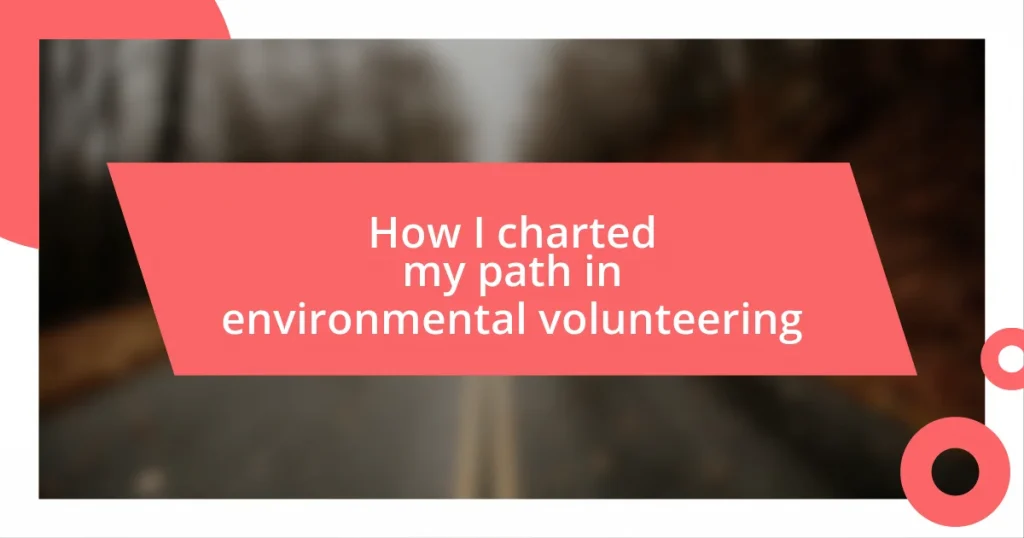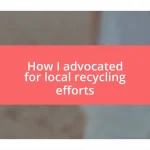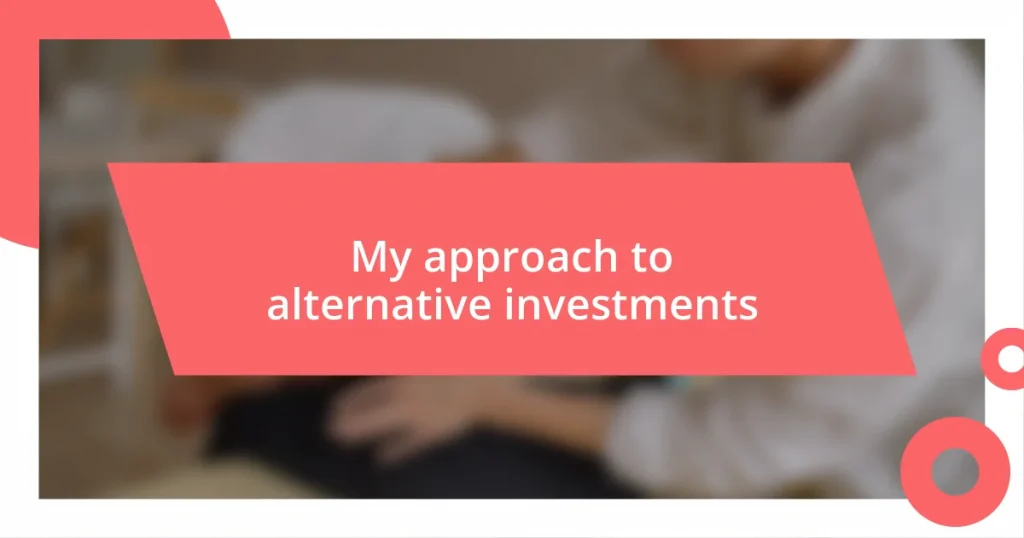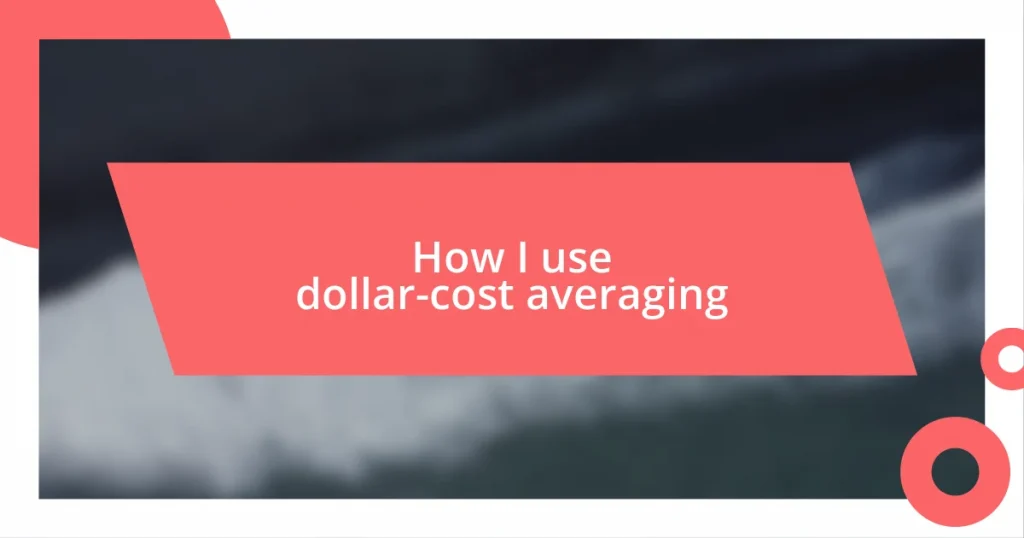Key takeaways:
- Environmental volunteering offers diverse opportunities that foster community connections and personal growth.
- Gaining practical skills and knowledge is crucial for effective volunteering, enhanced through workshops, networking, and field experiences.
- Choosing impactful projects involves aligning with personal values, assessing transparency and sustainability, and documenting experiences for reflection and inspiration.
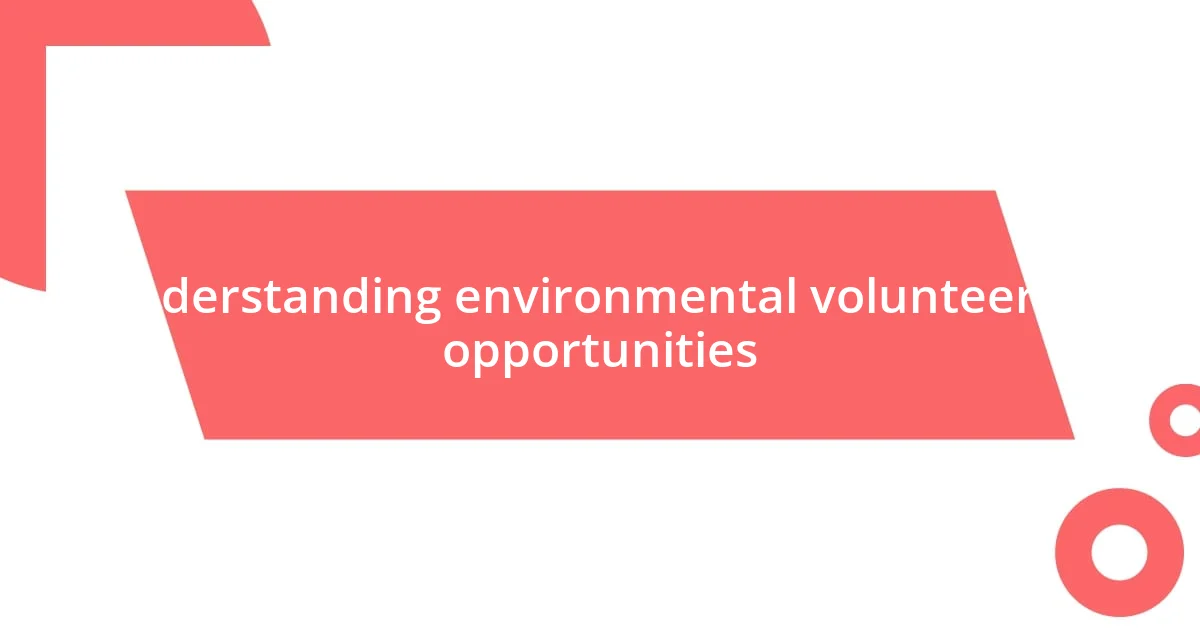
Understanding environmental volunteering opportunities
When I first dipped my toes into environmental volunteering, I was amazed at the sheer variety of opportunities available. From local clean-up initiatives to global conservation projects, it felt as if there was a role for everyone. Have you ever felt overwhelmed by choices? I certainly did, but seeking out projects aligned with your passions is key.
One of my most memorable experiences was participating in a tree-planting event in my neighborhood. Initially, I thought it was just about digging holes and putting saplings in the ground, but it turned into an emotional journey about community and connection. I remember chatting with a mother who brought her children along, teaching them the importance of trees and the environment. It made me realize that volunteering doesn’t just benefit the planet—it strengthens our community bond too.
Understanding these opportunities isn’t just about knowing where to sign up; it’s about recognizing how they resonate with your values. Why do you want to volunteer? For me, it was about making a tangible impact in my local area. By reflecting on your motivations, you can choose projects that truly inspire you, making the experience fulfilling not just for the environment but for your soul.
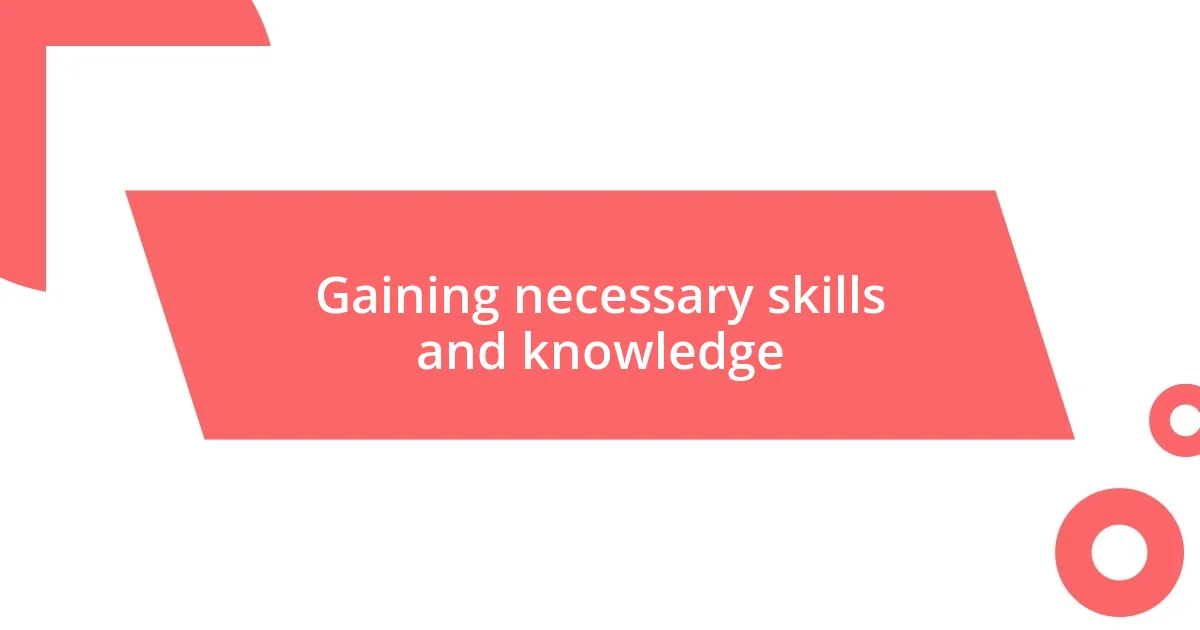
Gaining necessary skills and knowledge
Gaining the necessary skills and knowledge in environmental volunteering was a transformative experience for me. At first, I felt like I had more enthusiasm than know-how, but I quickly learned that practical skills are essential. I dove deep into researching environmental science, attending workshops, and connecting with seasoned volunteers. Each session provided nuggets of wisdom—from learning about ecosystem balance to understanding sustainable practices.
- Workshops and Training Sessions: Participating in hands-on workshops helped me grasp the practical side of conservation.
- Networking with Experienced Volunteers: Talking to those who had been in the field for years opened my eyes to the complexities of environmental issues.
- Online Resources: I found valuable information through webinars and articles that broadened my perspective and sharpened my skills.
- Field Experience: Getting my hands dirty in real-world projects taught me lessons that no textbook could convey.
Reflecting on the emotional aspect, I remember how nervous I felt walking into my first workshop. As I listened to experts discuss marine biology, I began to see my passion converging with knowledge. It was in those moments, absorbing each detail, that I understood how empowered volunteering could make me—turning my excitement into informed action.
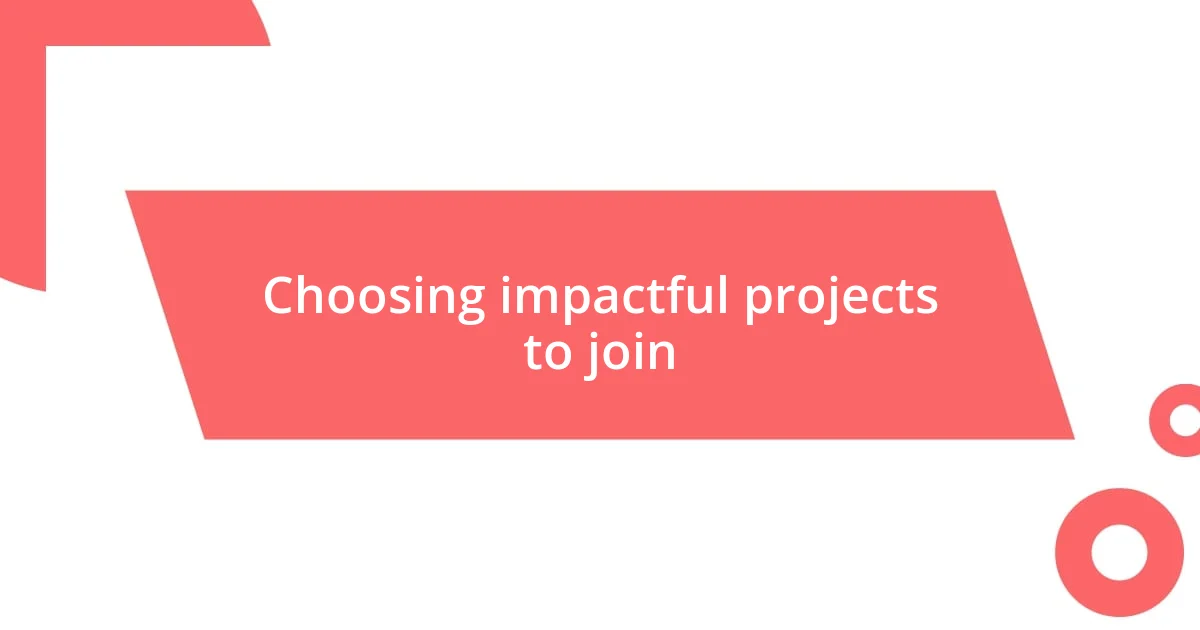
Choosing impactful projects to join
Choosing the right environmental project can feel like a daunting task, especially with so many options available. I often found myself asking, “What truly makes a project impactful?” For me, this meant identifying initiatives that aligned with pressing local issues. When I discovered a local habitat restoration project that tackled erosion on a beloved hiking trail, I felt a spark of excitement. Not only did it address a specific environmental concern, but it also connected me with a community that shared my passion for preserving nature.
While exploring various projects, I learned the importance of asking questions. How does this initiative measure success? Are they transparent about their goals and progress? I once joined a clean-up drive that inspired me with its dedication to both education and action. The organizers shared statistics about plastic pollution and the impact of our efforts in real-time. That made me feel like I was not just picking up trash but also contributing to a larger solution, which deepened my commitment to the cause.
In my experience, considering the long-term sustainability of a project is crucial. I remember volunteering for an urban gardening project that aimed to improve food security in my city. What struck me was their plan to train community members, ensuring that the garden would thrive even after we left. It felt fulfilling to be part of a project with lasting impact, turning green spaces into a resource for generations to come.
| Factors to Consider | Examples |
|---|---|
| Alignment with Personal Values | Local habitat restoration for hiking trails |
| Questions to Ask | Project transparency about goals and impact |
| Sustainability of a Project | Urban gardening initiatives training community members |
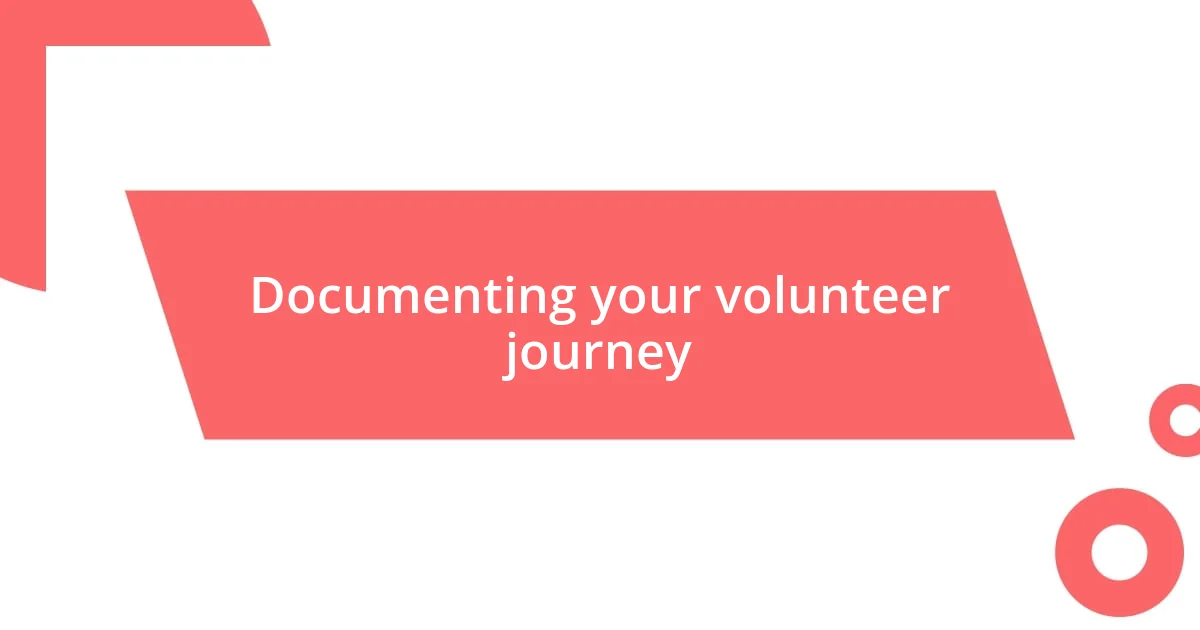
Documenting your volunteer journey
Documenting my volunteer journey became a rewarding habit that I cherish to this day. I started by keeping a simple journal to track my experiences, thoughts, and feelings after events and projects. Initially, it felt like a chore, but as I revisited my entries, I was surprised by the personal growth and insights I unearthed. Have you ever reflected on a moment that made you realize how much you’ve changed?
Photography played a role in this journey too. I began snapping pictures during events, which allowed me to capture not just the work, but also the people and the emotions involved. Looking back at those images often stirred a whirlwind of memories—like the day we planted trees in a community park. The smiles of fellow volunteers and the sense of camaraderie made me appreciate the collective effort. It’s phenomenal how visuals can trigger such strong connections, isn’t it?
One of my most cherished documentation practices was creating a digital scrapbook of projects I participated in. With every entry, I noted the differing challenges we faced, the unique lessons learned, and even moments of failure. Each project had its flavor and storytelling aspect—like the time our beach clean-up turned into an unexpected learning session on marine biology. It taught me that storytelling isn’t just about the glory; it’s about growth and resilience. Sharing these narratives helped me inspire others on similar paths. What stories are you eager to share from your own journey?










